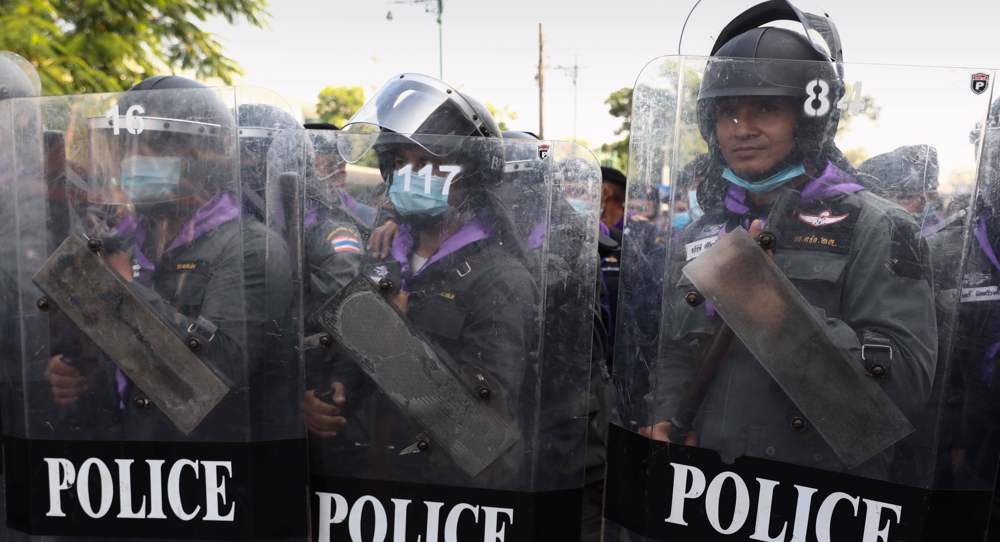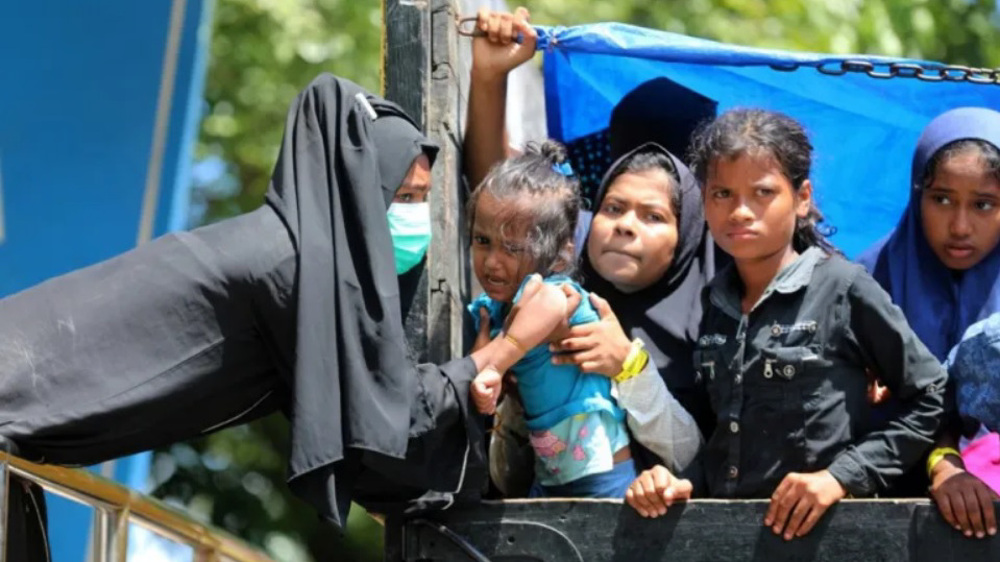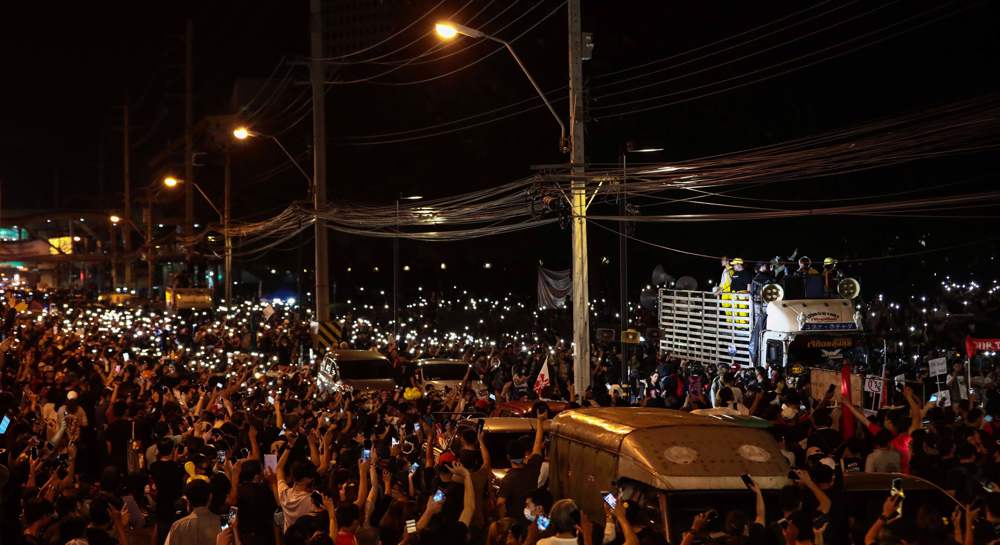UNHR office calls on Thailand to revise royal insult law
The United Nations human rights office (OHCHR) has called on Thailand to revise the so-called lese majeste law that prohibits insulting its king and criminalizes protest moves criticizing the monarch and demanding reforms.
“We call on the Government of Thailand to stop the repeated use of such serious criminal charges against individuals for exercising their rights to freedom of expression and peaceful assembly,” OHCHR spokeswoman Ravina Shamdasani said in a Friday press briefing in Geneva, noting that the law had been used in recent week against at least 35 protesters, including a teenager.
“We are particularly alarmed that the 16-year-old activist was yesterday presented by police to the Juvenile Court with a request for detention order,” she added.
Prosecutions, which had stopped in 2018, resumed after protesters started breaking longstanding taboos since July by calling for reforms to limit the powers of King Maha Vajiralongkorn during months of street rallies. Those found guilty under the royal insult law face three to 15 years in prison.
The spokesperson for the UN High Commissioner for Human Rights also said Friday charges had been filed against protesters for sedition and computer crimes offences as well, adding, “People should be able to exercise these rights without fear of reprisals.”
Among those who were charged with violating the law in recent weeks were youth leader Parit “Penguin” Chiwarak, human rights lawyer Anon Numpha, Panupong “Mike” Jaadnok, student leader Panusaya “Rung” Sithijirawattanakul and actress Intira Charoenpura.
Reacting to the strong UN criticism, a Thai foreign ministry spokesman claimed that the law was not aimed at curbing freedom of expression and that it was similar to libel laws.
“In the past couple of months, protesters have not been arrested solely for the exercise of the right to freedom of expression and peaceful assembly,” Tanee Sangrat said in a statement. “Those arrested had violated other Thai laws and admittedly the majority have been released.”
The youth-led protests, which began last summer, also demand the ouster of Prime Minister Prayuth Chan-ocha, a former military junta leader, and for the drafting of a new constitution.
Prayuth has rejected calls for his resignation and insisted that all laws would be used against protesters who break them – raising fears of activists that the royal insult laws would be used to silence them.
They later demanded reforms to the monarchy, seeking the king to be more clearly accountable under the constitution as well as the reversal of changes that further granted him control of royal finances and some army units.
The Royal Palace has made no comment since the protests began, however, during a public appearance in November, the king said that Thailand was “a land of compromise” when asked about the protests.
Trump administration moves to cut funding for ICE body cameras
VIDEO | Qeshm: Iran’s biggest island boasts 1st UNESCO geopark in region
VIDEO | People in Spain’s Granada mobilize against Gaza genocide, US imperialism
VIDEO | Thousands protest in Brussels over austerity measures
Kata’ib Hezbollah asks fighters to prepare for 'war' in support of Iran
Israeli warplanes conduct new aggressions across southern Lebanon
VIDEO | Possible US-Israeli aggression on Iran
VIDEO | US deadly protest crackdown














 This makes it easy to access the Press TV website
This makes it easy to access the Press TV website